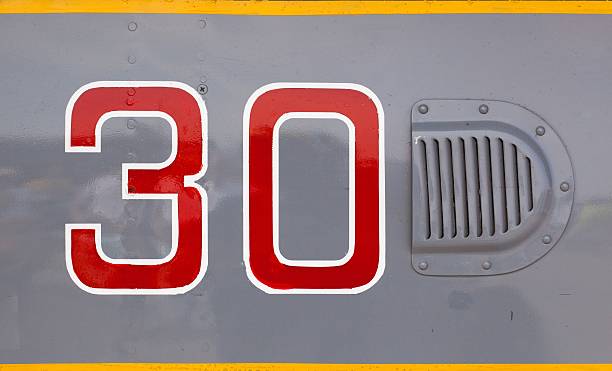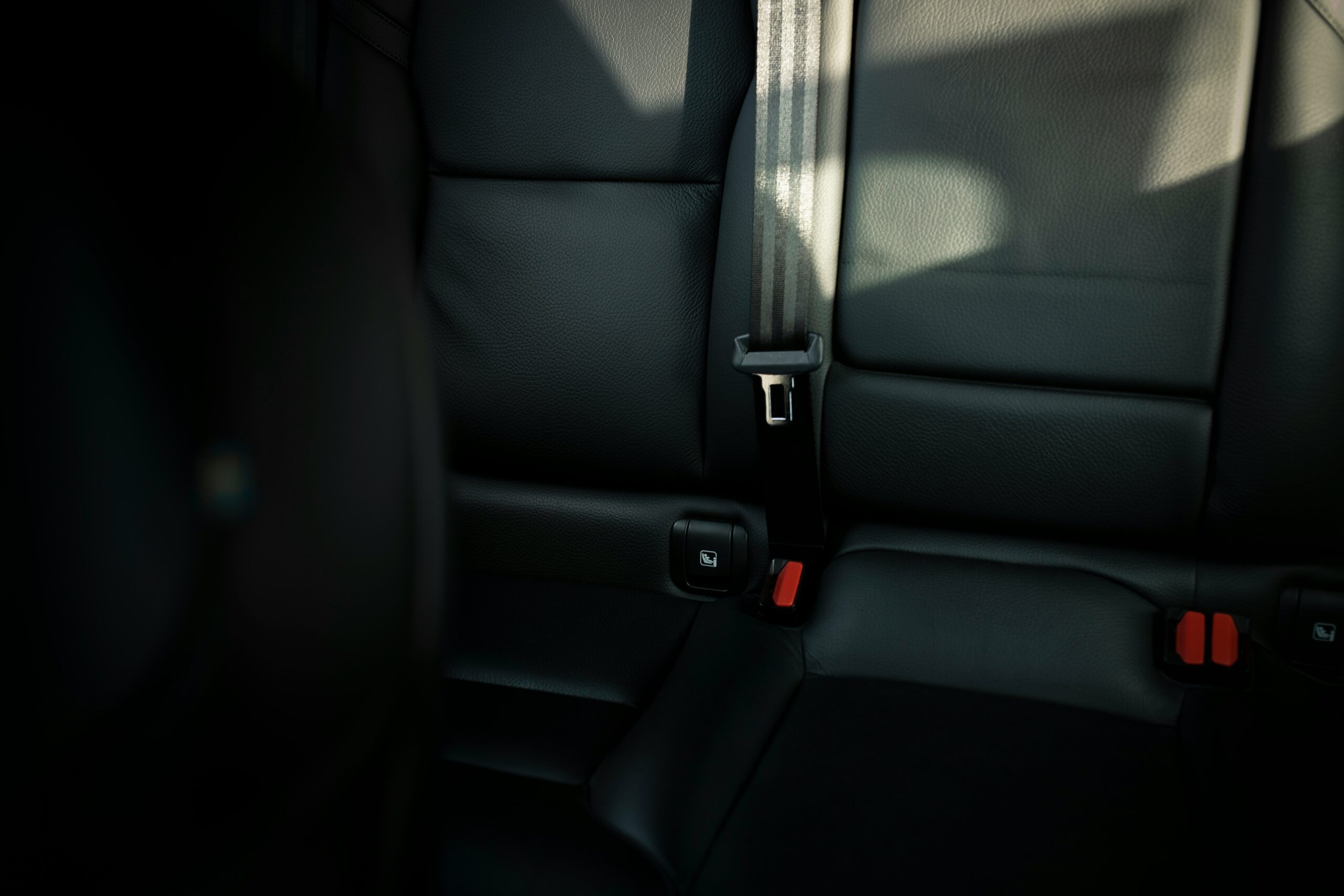News
The Enigmatic Trail of Martin E. Walker-Oklee: Unveiling the Legacy of a Quiet Visionary

Not all legacies are born under spotlights. Some simmer quietly, waiting to be discovered like an old letter tucked inside a book. Martin E. Walker-Oklee—a name that rings martin e. walker-oklee with the depth of purpose—wasn’t one for the headlines, yet his influence rippled across communities, ideas, and movements. Whether you’ve stumbled across this name by chance or are actively searching for more about the man behind the hyphenated name, you’re in for a fascinating journey.
In this article, we’re pulling back the curtain on the life, work, and unexpected legacy of Martin E. Walker-Oklee. We’ll examine his contributions, unravel the philosophies that guided him, and explore how his story still whispers relevance today.
The Man Behind the Name: Who Was Martin E. Walker-Oklee?
A Patchwork of Cultures and Values
From the start, Martin E. Walker-Oklee straddled multiple worlds. Born to a biracial family in the borderlands of the Midwest, his name itself symbolized fusion: Walker, a nod to his African American heritage, and Oklee, derived from a small township in Minnesota where his maternal grandparents ran a local newspaper. His upbringing was steeped in diversity—culturally, intellectually, and emotionally.
Raised in a home where art met activism and Sunday dinners doubled as political debates, Martin’s early years were anything but conventional. His mother, a literature professor, passed on a love for words. His father, a postal worker and union organizer, instilled a deep sense of justice.
Education as Transformation
Martin’s academic path was non-linear, winding through community colleges, a brief stint in the military, and eventually, a master’s degree in Urban Sociology. His thesis? “Invisible Engines: The Role of Community Spaces in Post-Industrial Cities.” It wasn’t just academic—it was prophetic.
Legacy in Motion: Martin’s Contributions to Society
1. Reimagining Education at the Grassroots Level
Martin wasn’t the type to be wowed by fancy degrees or Ivy League panels. What truly moved him was the power of neighborhood education initiatives. In the late 1990s, he co-founded The Learning Porch, a community-based afterschool program located—literally—on his own front porch.
“It’s not about building walls around knowledge,” Martin once said. “It’s about tearing them down.”
This modest program ballooned into a model for over 30 community hubs across the Midwest. The focus was clear:
-
Local mentorship
-
Arts-integrated learning
-
Cultural storytelling
-
Civic literacy
Kids weren’t just memorizing dates—they were learning how to question, dream, and organize.
2. Civic Advocacy Without the Suit and Tie
Not all change-makers hold public office. Martin often quipped, “Power doesn’t come from a podium—it comes from a porch light.” He was a beloved figure in neighborhood councils, always advocating for policies that impacted working-class families.
He spearheaded the Streetlight Project, which mapped out poorly lit urban zones contributing to crime rates. Armed with nothing but a notebook and a small grant, he catalyzed real municipal change—literally lighting the way for safer communities.
The Philosophy of Martin E. Walker-Oklee
Bridging the Micro and Macro
Martin believed that small actions shape global revolutions. Whether it was helping a neighbor fix a bike or testifying at a city hall meeting, his motto remained consistent: Think globally, act porch-ly.
Quirky? Absolutely. But it worked.
Spirituality Without Borders
He never subscribed to any one religion, but Martin practiced what he called “Applied Spirituality.” For him, faith was less about doctrine and more about compassion in motion—feeding someone who was hungry, listening to a rant without judgment, or holding space for grief.
A Quiet Digital Footprint, A Loud Legacy
It’s easy to overlook someone like Martin E. Walker-Oklee in the age of algorithms. He had no official website, barely used email, and believed social media was “like standing on a stage without a script.” Still, his influence quietly seeped into policy papers, community organizing toolkits, and educational philosophies.
His name might not show up in trending searches, but try asking any longtime community organizer in the Twin Cities, and chances are—they’ve heard of him.
Curious Details That Make the Legend
Let’s pause and savor the quirks that made Martin unique:
-
He wrote letters—handwritten ones—to every student who graduated from his porch program.
-
He was an avid harmonica player, often saying music could heal what words couldn’t.
-
Martin refused to drive—he believed walking kept him grounded in his surroundings.
-
He wore a hat that said “Public Thinker”, often mistaken for a political slogan.
These tidbits aren’t just martin e. walker-oklee—they’re the soul behind the strategy.
Why Does Martin E. Walker-Oklee Matter Today?
In an era of polarizing soundbites and performative martin e. walker-oklee activism, Martin’s story reminds us of something beautifully simple: change begins with proximity.
His Relevance Today:
-
In education: A reminder that standardized tests don’t measure empathy or creativity.
-
In urban reform: Proof that data gathered by citizens can be more impactful than that collected by machines.
-
In racial equity: An example of how mixed-heritage voices offer nuanced insights we desperately need.
-
In mental health advocacy: He martin e. walker-oklee pioneered quiet corners—safe zones in community centers for decompression, long before mindfulness became a trend.
Frequently Asked Questions (FAQs)
Q1: Was Martin E. Walker-Oklee a public figure?
Not exactly. He preferred being what he called a “public presence.” He influenced public policy and education, but never sought fame or elected office.
Q2: Are there any books or documentaries about him?
As of now, there’s a short docu-series in development titled “Porchlight Politics: The Story of Martin E. Walker-Oklee.” No published biography exists, though several of his essays have appeared in urban studies journals.
Q3: What was his biggest achievement?
Depends who you ask. Some say The Learning Porch. Others mention his advocacy for infrastructure equity. But for many, it’s how he made people feel seen and heard—an achievement that’s hard to quantify.
The Future of the Walker-Oklee Legacy
There’s growing interest in preserving Martin E. Walker-Oklee’s writings, photos, and speeches. A digital archive project is underway, crowd-sourced by former students and local historians. There’s even talk of renaming a local library branch in his honor.
But perhaps the greatest tribute lies in the actions of those he inspired:
-
A teacher incorporating civic debates into third-grade curriculum
-
A social worker creating art therapy pop-ups on urban sidewalks
-
A city planner including benches in high-traffic areas for elderly neighbors
All of it echoes his philosophy—proximity, presence, and purpose.
Conclusion
Martin E. Walker-Oklee may not be a household name, but his legacy pulses beneath the surface of progressive thought, civic reform, and grassroots education. His life serves as a blueprint for those who want to do meaningful work quietly, but powerfully. In every small act of compassion, in each moment of mindful advocacy, Martin lives on.
So the next time you walk past a neighborhood mural or see a child learning history through poetry, pause and smile—you just might be witnessing the afterglow of Martin E. Walker-Oklee’s lifelong mission.
News
Exploring the Journey of Daylin Ryder: A Rising Star in [Industry/Field]

Daylin Ryder is more than just a name; she’s becoming a phenomenon. As she navigates the intricate pathways of her industry, Daylin captivates audiences with her charisma and creativity. From humble beginnings to establishing herself as an influential force, her journey is nothing short of inspiring.
With every post and performance, she invites us into her world, revealing the power of authenticity in today’s digital landscape. Join us as we explore the captivating ascent of Daylin Ryder—an artist whose impact resonates far beyond traditional boundaries.
Exploring the Journey of Daylin Ryder: A Rising Star in [Industry/Field]
Daylin Ryder’s journey reflects resilience and ambition. Her unique blend of talent and authenticity sets her apart, making waves in the industry while inspiring countless others to follow their dreams.
Who Is Daylin Ryder?
Daylin Ryder is a dynamic creator redefining the entertainment landscape. With her unique blend of talent and authenticity, she captivates audiences across multiple platforms, making waves in both music and acting.
From Everyday Posts to Digital Authority
Daylin Ryder transformed her casual social media presence into a digital powerhouse. Her authentic connection with followers set the stage for influence, guiding her journey from everyday posts to recognized authority in the industry.
The Power of Storytelling in Her Brand
Daylin Ryder masterfully weaves storytelling into her brand. Each post and performance captivates audiences, creating a genuine connection that resonates deeply. Her narratives inspire and engage, setting her apart in the industry.
How Daylin Ryder Uses Digital Platforms Strategically
Daylin Ryder expertly navigates digital platforms, leveraging social media algorithms. She crafts engaging content that resonates with her audience, ensuring visibility and fostering genuine connections across multiple channels.
Why People Connect With Daylin Ryder
Daylin Ryder resonates with audiences through her genuine personality, relatability, and inspiring messages. Her ability to share personal stories fosters a strong connection, making fans feel understood and valued in their own journeys.
Business Moves and Entrepreneurial Growth
Daylin Ryder is making waves in the business world. Her innovative strategies and partnerships showcase an ambitious mindset, driving entrepreneurial growth while inspiring others to pursue their own creative ventures.
The Impact of Authenticity in a Digital World
Authenticity resonates deeply in today’s digital landscape. Audiences crave genuine connections, making it essential for creators to share their true selves. This fosters loyalty and trust, setting them apart in a crowded marketplace.
What You Can Learn From Daylin Ryder
Daylin Ryder teaches the importance of authenticity. She demonstrates that staying true to oneself can build genuine connections, inspire creativity, and foster a loyal community across various platforms and industries.
Daylin Ryder’s Future and What’s Next
Daylin Ryder is poised for exciting ventures. With new projects on the horizon, her innovative spirit promises to redefine boundaries in entertainment and digital content creation, captivating audiences worldwide.
Early Life and Foundations of Creativity
Daylin Ryder’s early life was rich with artistic influences. Growing up in a vibrant community, she embraced creativity through various outlets, laying the groundwork for her future endeavors in entertainment and beyond.
Breaking into the Entertainment Industry
Daylin Ryder’s entry into the entertainment industry was marked by determination and resilience. She navigated auditions, built connections, and showcased her unique talents, steadily making a name for herself in a competitive world.
Signature Roles and Performances of Daylin Ryder
Daylin Ryder has captivated audiences with her compelling performances. Each role showcases her versatility, bringing depth and authenticity that resonates deeply, whether in drama or lighthearted moments on screen.
Expanding Horizons: Beyond Acting
Daylin Ryder is not just an actress. She seamlessly blends her talents into music and fashion, exploring new creative outlets. Her versatility inspires many to embrace their multifaceted passions in life.
Public Persona and Social Impact of Daylin Ryder
Daylin Ryder captivates audiences with her authentic presence. Her influence extends beyond entertainment, inspiring discussions on social issues and empowering her followers to embrace their true selves while fostering community connections.
Challenges and Moments of Growth
Daylin Ryder faced numerous obstacles on her journey. Each challenge became a stepping stone, fueling her determination and creativity. These moments of growth shaped her resilience and commitment to authenticity in every endeavor.
Collaborations and Creative Chemistry
Daylin Ryder thrives on collaborations, blending her unique vision with diverse talents. This creative chemistry results in innovative projects that captivate audiences and push boundaries within the entertainment landscape.
Influence on Emerging Artists
Daylin Ryder inspires emerging artists by showcasing authenticity and creativity. Her journey encourages them to embrace their unique voices, fostering a community where innovation flourishes and artistic boundaries expand.
Presence of Daylin Ryder in Popular Culture
Daylin Ryder has become a cultural phenomenon, influencing trends in fashion and music. Her unique style and authenticity resonate with fans, making her a beloved figure across various digital platforms.
Embracing Change and Innovation
Daylin Ryder thrives on change, continually reinventing her brand. Her willingness to embrace innovation inspires others, showcasing how adaptability is key in a rapidly evolving entertainment landscape. Growth follows transformation.
The Philosophy Behind the Craft
Daylin Ryder believes in authenticity as her guiding principle. She embraces vulnerability, allowing her artistry to reflect genuine emotions and experiences, creating a deeper connection with her audience through relatable narratives.
Future Projects and Expectations from Daylin Ryder
Daylin Ryder is set to explore new realms, with upcoming projects that blend her artistry in music and acting. Fans eagerly anticipate innovative collaborations and fresh content showcasing her evolving talent.
Reflections on Legacy of Daylin Ryder
Daylin Ryder’s legacy is marked by authenticity and creativity. Her journey inspires countless aspiring artists, illustrating that passion combined with strategy can lead to transformative success in today’s digital landscape.
Introduction: Why Daylin Ryder Matters Right Now
\ is capturing attention with her unique blend of talent and authenticity. As a rising star, she embodies the voice of a generation, reshaping industries and inspiring countless fans worldwide.
Behind the Feed: Who Is Daylin Ryder?
Daylin Ryder is a dynamic force in the digital landscape. With her engaging content and vibrant personality, she captivates audiences, blending authenticity with creativity to create a unique online presence.
Why Daylin Ryder Connects with So Many
Daylin Ryder’s authenticity shines through her content. She shares relatable experiences, fostering genuine connections. Her ability to empathize and inspire resonates deeply, making her a trusted figure for many followers worldwide.
Not Just Looks: Daylin’s Voice and Message
Daylin Ryder captivates audiences with her powerful voice. Her message transcends surface beauty, focusing on empowerment and authenticity. She inspires others to embrace their true selves while promoting self-love and confidence.
Community Vibes: More Than Just Followers
Daylin Ryder cultivates genuine connections with her audience. It’s not about numbers; it’s about creating a community where followers feel valued, heard, and part of something bigger than themselves.
The Deeper Shift: Why Daylin Ryder Isn’t Just a Trend
Daylin Ryder transcends fleeting trends. Her authenticity and relatable storytelling forge genuine connections, making her influence profound. Fans resonate with her message, creating a lasting impact that goes beyond superficial popularity.
Conclusion: What I’ve Learned from Daylin Ryder
Daylin Ryder’s journey teaches resilience, creativity, and the importance of authenticity. Her ability to connect deeply with her audience showcases how passion can transform into a powerful digital presence.
Introduction to Daylin Ryder
is capturing attention across multiple platforms. Her unique blend of creativity and authenticity resonates deeply with audiences, making her a standout figure in today’s digital landscape.
Early Life and Career Beginnings
Daylin Ryder’s early life was marked by creativity and curiosity. Growing up, she immersed herself in the arts, setting the foundation for a remarkable career that would soon unfold.
The Turning Point: A Creative Revolution
experienced a pivotal moment that transformed her artistry. Embracing innovation, she redefined boundaries and inspired countless followers to explore their own creativity alongside her evolving journey in the spotlight.
Implementing Strategy in the Entertainment Industry
masterfully blends creativity with strategy, navigating the entertainment industry’s complexities. Her calculated approach ensures her projects resonate widely while maintaining authenticity in every endeavor she undertakes.
Impact on the Music and Fashion Worlds
has seamlessly blended music and fashion, influencing trends with her unique style. Her collaborations with designers and artists highlight a fresh perspective that resonates deeply within both industries.
Collaborations and Partnerships
has forged dynamic collaborations that amplify her creative vision. By partnering with diverse artists and brands, she creates impactful projects that resonate deeply with her audience and expand her reach.
Future Plans and Continued Growth
is focusing on expanding her brand into new realms. Expect innovative projects that blend artistry with strategy, enhancing her influence across entertainment, fashion, and digital landscapes. Exciting times lie ahead!
Daylin Ryder Bold Journey: 7 Inspiring Truths Behind Her Digital Empire
‘s journey reveals resilience, creativity, and innovation. Her ability to connect authentically with audiences drives her digital empire, showcasing the power of storytelling in today’s fast-paced landscape.
Elevating Digital Content Creation
elevates digital content by blending authenticity and creativity. Her unique voice resonates, inspiring others to innovate and push boundaries in the ever-evolving landscape of online storytelling.
Purpose-Driven Lifestyle Branding
embodies purpose-driven lifestyle branding by aligning her values with her content. This authenticity resonates deeply, fostering a loyal community that embraces both her message and creative endeavors.
Strategic Platform Approach
r leverages various digital platforms to maximize her reach. By tailoring content for each medium, she engages diverse audiences while maintaining a cohesive brand identity that resonates deeply with fans.
Innovative Fusion of Artistry & Strategy
r masterfully blends creativity with strategy. Her artistic vision is enhanced by calculated moves, allowing her to resonate deeply within the entertainment industry while captivating diverse audiences across digital platforms.
Her Impact Across Fields
transcends boundaries, influencing music, fashion, and digital media. Her unique style and innovative approach resonate with diverse audiences, inspiring countless creatives to explore their own artistic journeys.
Entrepreneurial Growth and Brand Expansion
Daylin Ryder’s entrepreneurial journey showcases her keen sense of brand expansion. She strategically harnesses opportunities, collaborating across industries to elevate her presence and foster growth in innovative ways.
Why Authenticity Wins
Authenticity resonates deeply. In a world saturated with curated images, genuine voices stand out. ’s realness fosters trust and connection, making her relatable to fans and aspiring creators alike.
Key Takeaways From Daylin Ryder’s Journey
Daylin Ryder’s journey teaches the importance of authenticity, adaptability, and strategic growth. Her ability to connect with audiences showcases how genuine storytelling can elevate a personal brand in today’s digital landscape.
Future Roadmap & What’s Ahead
As continues to shine in her career, her future roadmap is filled with exciting possibilities. With each project, she expands her creative boundaries and explores new collaborations. Fans eagerly await her next performances, knowing she will deliver something fresh and impactful.
Daylin’s commitment to authenticity remains a cornerstone of her brand. This approach not only resonates with audiences but also sets a standard for emerging artists in the industry. As she embraces innovation, we can expect more unique content that reflects both her artistry and the evolving landscape around us.
Future plans hint at ventures beyond acting, possibly delving deeper into music or fashion. Whatever direction she takes, it’s clear that Daylin Ryder is on a trajectory toward greater heights. Her journey offers inspiration for aspiring creatives everywhere—demonstrating the power of passion combined with strategic vision.
With every step forward, Daylin proves herself as not just an artist but a force within popular culture—a true rising star whose influence will be felt for years to come. The path ahead promises growth and exploration while staying true to what makes Daylin authentically herself.
News
Exploring Class30xus: A Revolution in Digital Learning

The landscape of education is shifting rapidly, driven by advancements in technology and the need for flexible learning solutions. Enter Class30xus, a groundbreaking platform that promises to revolutionize digital learning as we know it. With its innovative features and user-centric approach, Class30xus aims to bridge the gap between traditional classroom experiences and modern educational needs. Whether you’re a student eager for personalized lessons or an educator seeking effective tools, this platform offers something for everyone. Let’s dive into what makes Class30xus a game-changer in the world of online education.
Exploring Class30xus: A Revolution in Digital Learning
Class30xus is transforming the way we approach digital learning. By combining technology with education, it creates an engaging environment that caters to individual needs. With a focus on accessibility and interactivity, this platform empowers learners of all ages. Discover how Class30xus redefines traditional teaching methods and enhances the educational experience for everyone involved.
Importance of School Lessons
School lessons lay the foundation for critical thinking and problem-solving skills. They foster intellectual curiosity, helping students explore various subjects. Lessons encourage collaboration and communication among peers, nurturing social skills essential for future interactions. Moreover, they instill discipline and time management abilities that benefit learners throughout their lives, shaping well-rounded individuals ready to face challenges ahead.
Core Subjects in School Lessons
Core subjects in school lessons form the foundation of a well-rounded education. Mathematics, science, language arts, and social studies are essential for developing critical thinking skills. These subjects engage students in understanding the world around them while preparing them for future challenges. A strong grasp of core concepts is vital for academic success and lifelong learning.
The Role of Teachers in School Lessons
Teachers play a crucial role in shaping the learning experience. They guide students through complex subjects, foster critical thinking, and inspire curiosity. With personalized feedback and support, teachers adapt lessons to meet diverse needs. Their passion for education not only motivates students but also builds a collaborative classroom environment where everyone can thrive together.
Challenges in School Lessons
School lessons often face numerous challenges. Limited resources can hinder effective teaching, while varying learning speeds create barriers for students. Traditional approaches may not engage all learners, leading to disengagement. Additionally, the pressure of standardized testing can stifle creativity and critical thinking. These issues highlight the need for innovative solutions in education today.
Introduction to Class30xus
Class30xus is transforming digital learning by blending technology with education. Designed to cater to diverse learners, it offers an engaging platform that enhances understanding and retention. With its innovative approach, Class30xus aims to make quality education accessible for everyone, bridging gaps in traditional teaching methods while fostering a passion for lifelong learning.
Understanding Class30xus – Overview and Mission
Class30xus is redefining digital learning. Its mission centers on accessibility, engagement, and personalized education for all learners. The platform combines cutting-edge technology with innovative teaching methods to create a dynamic educational experience. By prioritizing individual needs and fostering collaboration, Class30xus aims to empower students and educators alike in their pursuit of knowledge.
Key Features of Class30xus That Make It Stand Out – Personalized Learning Paths
Class30xus offers personalized learning paths tailored to each student’s unique needs. This feature allows learners to progress at their own pace, focusing on areas that require more attention. By adapting content and assessments based on individual performance, Class30xus ensures a customized educational experience that fosters engagement and improves overall understanding of core subjects.
Key Features of Class30xus That Make It Stand Out – Interactive Learning Tools
Class30xus embraces interactivity, enhancing the learning experience. Its innovative tools engage students through quizzes, simulations, and collaborative projects. This hands-on approach fosters deeper understanding and retention of concepts. By making learning fun and dynamic, Class30xus keeps students motivated while encouraging critical thinking skills essential for success in today’s fast-paced world.
Key Features of Class30xus That Make It Stand Out – Mobile and Offline Access
Class30xus offers mobile and offline access, allowing learners to study anytime, anywhere. Whether on a bus or in a remote area without internet, students can download materials for seamless learning. This flexibility empowers users to engage with content at their convenience, enhancing the overall educational experience while overcoming geographical barriers.
Key Features of Class30xus That Make It Stand Out – Seamless Course Creation
Class30xus simplifies course creation for educators. With an intuitive interface, teachers can easily design and customize courses to fit diverse learning needs. The drag-and-drop functionality allows for quick integration of multimedia elements, enhancing student engagement. This streamlined process empowers instructors to focus on delivering quality content rather than navigating complicated software hurdles.
Key Features of Class30xus That Make It Stand Out – Real-Time Analytics
Class30xus offers real-time analytics to track student progress and engagement. This feature allows educators to identify learning patterns, strengths, and areas needing improvement instantly. By leveraging data insights, teachers can make informed decisions, tailor instruction, and ensure that every learner receives the support they need for success in their educational journey.
Class30xus Benefits for Different User Groups – For Students
Class30xus empowers students by providing personalized learning experiences tailored to their needs. With interactive tools and a flexible schedule, learners can grasp difficult concepts at their own pace. The platform encourages engagement through gamified elements that make education enjoyable while fostering collaboration with peers, creating a supportive community around shared learning goals.
Class30xus Benefits for Different User Groups – For Teachers
Class30xus empowers teachers with customizable lesson plans and interactive content. It fosters collaboration through shared resources, allowing educators to connect easily. Real-time analytics provide insights into student performance, enabling informed adjustments in teaching strategies. With streamlined course creation tools, instructors can focus more on engaging students rather than administrative tasks.
Class30xus Benefits for Different User Groups – For Institutions
Class30xus empowers institutions by streamlining course management and enhancing student engagement. With user-friendly analytics, administrators can track progress and outcomes effectively. The platform’s customizable features allow schools to tailor learning experiences that meet diverse needs. Institutions also benefit from improved collaboration between educators, fostering an environment of shared resources and innovative teaching practices.
Technical and Security Features – Cloud Infrastructure and Uptime
Class30xus leverages robust cloud infrastructure to ensure high availability and reliability. With an impressive uptime guarantee, educational institutions can trust the platform to remain operational whenever needed. This reliability is crucial for uninterrupted learning experiences. Additionally, the scalable nature of the cloud supports growing demands without compromising performance or accessibility for users worldwide.
Technical and Security Features – Encryption and Data Compliance
Class30xus prioritizes user security through advanced encryption techniques, ensuring that all data remains confidential and protected. Compliance with national and international data regulations is a key focus, providing peace of mind for users. This commitment to high standards safeguards sensitive information while fostering trust among students, teachers, and institutions alike throughout the digital learning experience.
Real-World Use Cases of Class30xus – In Schools and Universities
is transforming education in schools and universities by providing tailored learning experiences. Educators can create engaging courses that cater to diverse student needs. Real-time analytics help track progress, while interactive tools enhance participation. This platform fosters collaboration among students, making lessons more dynamic and effective in today’s digital classroom environment.
Real-World Use Cases of Class30xus – Corporate Training Programs
Class30xus transforms corporate training by offering tailored learning experiences. Companies can utilize its interactive tools to upskill employees effectively. The platform’s real-time analytics allows managers to track progress, ensuring that training goals are met. From onboarding new hires to ongoing professional development, Class30xus fosters a culture of continuous learning in the workplace.
Real-World Use Cases of Class30xus – Lifelong Learners and Freelancers
Lifelong learners and freelancers thrive with Class30xus. They access diverse courses tailored to their interests, from coding to graphic design. The platform’s flexibility allows them to learn at their own pace while balancing work commitments. Real-time analytics help track progress, enabling continuous skill enhancement that keeps them competitive in an ever-evolving job market.
Challenges of Online Learning and How Class30xus Addresses Them
Online learning comes with challenges, such as engagement issues and accessibility concerns. tackles these problems through interactive tools and personalized learning paths. By providing mobile access and offline capabilities, it ensures that students can learn anytime, anywhere. This approach not only enhances participation but also makes education more inclusive for everyone involved.
Future Roadmap and Innovations
Class30xus is committed to continuous evolution. Future updates will enhance AI capabilities, making personalized learning even more effective. New collaborations with educational institutions aim to expand course offerings. Innovations in gamification and virtual reality promise immersive experiences for students. The platform’s roadmap focuses on integrating feedback and staying ahead of digital education trends, ensuring relevance in a fast-paced world.
How to Join the Class30xus Community – For Educators
Joining the Class30xus community as an educator is simple. Visit their website and create an account. You can explore resources, attend training sessions, and connect with other educators. Engage in forums to share best practices and innovative teaching methods. Embrace this opportunity to enhance your skills while contributing to a vibrant learning environment for all students.
How to Join the Class30xus Community – For Institutions
To join the community, institutions can start by visiting the official website. There, they can fill out a partnership inquiry form to express interest. A dedicated representative will follow up to discuss tailored solutions that fit their educational needs and enhance digital learning experiences for students and faculty alike.
How to Join the Class30xus Community – For Students
Joining the Class30xus community as a student is simple. Start by visiting the website and creating an account. Explore various courses tailored to your interests and goals. Engage with peers through forums and group activities. Don’t hesitate to seek help from instructors or fellow students, enhancing your learning experience along the way.
Conclusion – Is Class30xus the Future of Learning?
Class30xus represents a significant shift in how we approach education. With its innovative features and user-centered design, it has the potential to transform traditional learning experiences. By catering to diverse learning styles and needs, empowers students, teachers, and institutions alike. As digital education continues to evolve, platforms like Class30xus may very well redefine what it means to learn effectively in today’s world. The future of learning could be brighter with such revolutionary tools at our disposal.
News
Unlocking Your Potential: The Importance of Adaptability According to Alex Charfen

In today’s fast-paced world, the ability to adapt is more crucial than ever. Change is no longer a rare occurrence; it’s the new normal. Enter Alex Charfen, a thought leader who emphasizes adaptability as a cornerstone for success in both business and personal development. His insights reveal that mastering change isn’t just beneficial—it’s essential for thriving amid uncertainty. If you’re looking to unlock your potential and navigate life’s unpredictable twists, understanding Charfen’s framework on adaptability could be your game-changer. Let’s dive into why being adaptable can elevate your journey toward lasting success.
Alex Charfen Adaptability: Mastering Change for Lasting Success
Alex Charfen’s approach to adaptability focuses on embracing change rather than resisting it. He believes that those who can pivot quickly are the ones who will thrive in challenging environments. Change is not just an obstacle; it’s an opportunity for growth.
Charfen emphasizes that mastering adaptability involves a mindset shift. It requires recognizing potential disruptions and viewing them as chances to innovate or improve processes. This proactive stance positions individuals and organizations for long-term success.
In his framework, adaptability isn’t a one-time skill but a continuous practice. Those committed to developing this trait often find themselves ahead of the curve, ready to seize opportunities when they arise. Embracing this philosophy can transform how you navigate both personal and professional challenges.
The Importance of Adaptability
Adaptability is crucial in today’s fast-paced world. Change is constant, and those who can pivot quickly have a significant edge. Whether it’s a new technology or shifting market trends, being adaptable allows individuals and businesses to thrive.
When faced with obstacles, adaptability fosters resilience. It encourages innovative problem-solving and creative thinking. Those who embrace change see challenges as opportunities for growth rather than setbacks.
Furthermore, adaptability enhances collaboration among teams. When everyone is open to adjusting their approaches, communication flourishes, leading to improved outcomes. In an environment where flexibility reigns supreme, success becomes attainable for all involved parties.
Core Principles of Alex Charfen Adaptability Framework
The core principles of the Alex Charfen adaptability framework focus on embracing change as a constant. It encourages individuals and organizations to view challenges as opportunities for growth rather than obstacles. This shift in mindset is crucial for thriving in an ever-evolving environment.
Another key principle emphasizes clarity and vision. By setting clear goals, you can navigate uncertainties more effectively. Clarity helps streamline decision-making processes, allowing for quicker adaptations when needed.
Collaboration plays a vital role in adaptability. Engaging with diverse perspectives fosters innovative solutions, enabling teams to pivot seamlessly during times of change. Together, these principles create a robust foundation for mastering adaptability in both personal and professional realms.
Applications in Business
In today’s fast-paced business landscape, adaptability is crucial. Companies that embrace change can pivot quickly to meet market demands. This agility often leads to a competitive edge.
Alex Charfen’s adaptability framework encourages leaders to foster an environment where innovation thrives. By empowering teams to experiment and learn from failures, businesses become more resilient. This mindset cultivates a culture of continuous improvement.
Organizations leveraging Alex Charfen’s principles can better navigate uncertainties, whether it’s economic shifts or evolving consumer preferences. Adaptability allows companies not just to survive but also to thrive in challenging conditions, ensuring long-term success and growth.
Personal Development and Adaptability
Personal development thrives on adaptability. Embracing change allows individuals to grow and evolve in unpredictable environments. When we learn to adjust our mindset, we unlock new opportunities for growth.
Adapting our habits and routines can lead to significant personal breakthroughs. It encourages us to step out of our comfort zones and explore unfamiliar territories. This willingness fosters resilience, helping us bounce back from setbacks with greater strength.
Moreover, adaptability nurtures emotional intelligence. As we navigate changes, we become more aware of our reactions and feelings. This self-awareness enhances relationships, leading to deeper connections both personally and professionally.
Case Studies and Success Stories
Many businesses have thrived by embracing Alex Charfen’s adaptability framework. One notable example is a tech startup that pivoted its product focus during market shifts. By listening to customer feedback and adjusting their strategy, they saw rapid growth and increased customer loyalty.
Another success story comes from a manufacturing company that faced supply chain disruptions. Using the principles of adaptability, they developed alternative sourcing strategies. This proactive approach not only minimized losses but also positioned them as industry leaders in resilience.
Individuals can benefit too. A consultant who applied these concepts transformed her approach to client challenges. By remaining flexible and open-minded, she consistently exceeded expectations, leading to long-term partnerships and referrals.
Practical Tips for Developing Adaptability
To develop adaptability, start by embracing change. Instead of resisting new situations, view them as opportunities for growth. Practice stepping outside your comfort zone regularly to build resilience.
Next, cultivate a mindset of learning. Adopt a habit of seeking knowledge from various sources—books, podcasts, or conversations with diverse individuals. This expands your perspective and enhances problem-solving skills.
Maintain flexibility in your plans and goals. Life can be unpredictable; being open to adjusting your course will help you navigate challenges with greater ease. Reflect on past experiences where adaptability led to positive outcomes and allow those lessons to guide future decisions.
Conclusion
Embracing adaptability is essential for navigating today’s fast-paced world. The insights from Alex Charfen’s framework can be transformative, allowing individuals and organizations to thrive amidst change.
The journey toward becoming more adaptable may require commitment and practice. By understanding core principles and applying them in both business and personal contexts, anyone can unlock their potential.
As you explore your own path to adaptability, remember the stories of those who’ve succeeded before you. Their experiences serve as inspiration for embracing change with confidence and resilience.
Call to Action
Embracing adaptability is essential in today’s fast-paced world. As we’ve seen through Alex Charfen’s insights, mastering change isn’t just a skill—it’s a necessity for lasting success. Whether you’re seeking growth in your personal life or looking to enhance your business strategies, the principles of adaptability can guide you.
Now it’s time to take action. Start by assessing how adaptable you currently are and identify areas for improvement. Dive into the core principles shared by Charfen and apply them to your daily routines. Surround yourself with supportive individuals who encourage growth and resilience.
Don’t wait for change to happen; make it work for you. Explore resources that delve deeper into Alex Charfen’s adaptability framework, engage with communities focused on personal development, and share your journey with others. Your path toward unlocking potential begins today—take the first step now!
-

 Lifestyle5 months ago
Lifestyle5 months agoEnhancing Online Safety: The Benefits of Using Bold2fa
-

 Lifestyle1 month ago
Lifestyle1 month ago“Livpure Colibrim: A Whirlwind Romance Between Water and Wonder”
-

 News4 months ago
News4 months agoSteven Maranga Nyambega: A Visionary Leader Shaping the Future
-

 Fashion2 months ago
Fashion2 months agoUnlocking the Magic of Styleinventure com: Where Trend Meets Transformation
-

 Business2 months ago
Business2 months agoFFBooru: A Complete Guide to Navigation and Community Engagement
-

 Lifestyle1 month ago
Lifestyle1 month agoMystery on Wheels: The Curious Case of 鲁q 669fd
-

 Lifestyle5 months ago
Lifestyle5 months agoUnveiling Drooski18: The Rise of a Digital Influencer
-

 Lifestyle1 month ago
Lifestyle1 month agoUnlocking the Mystery of Chscampamp.org: Your Ultimate Guide to the Hidden Gem Online
